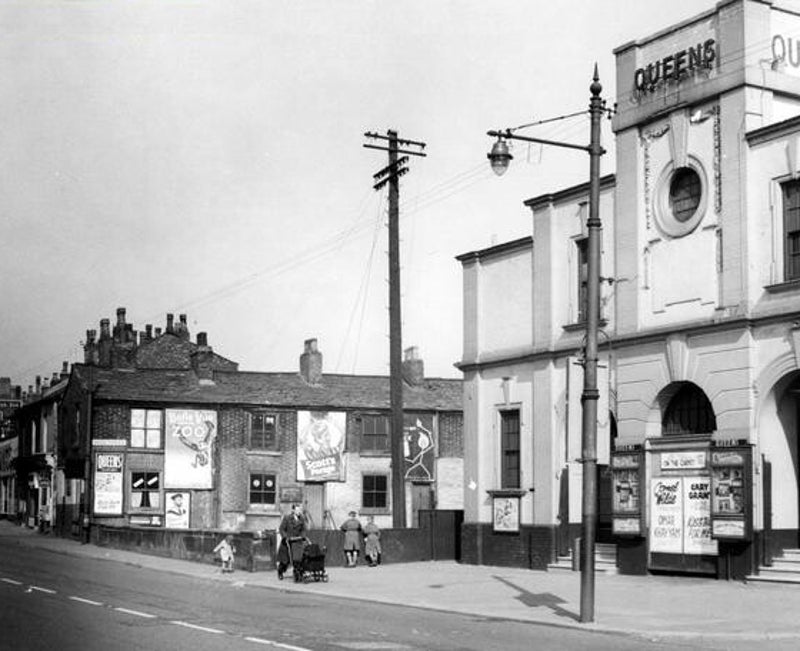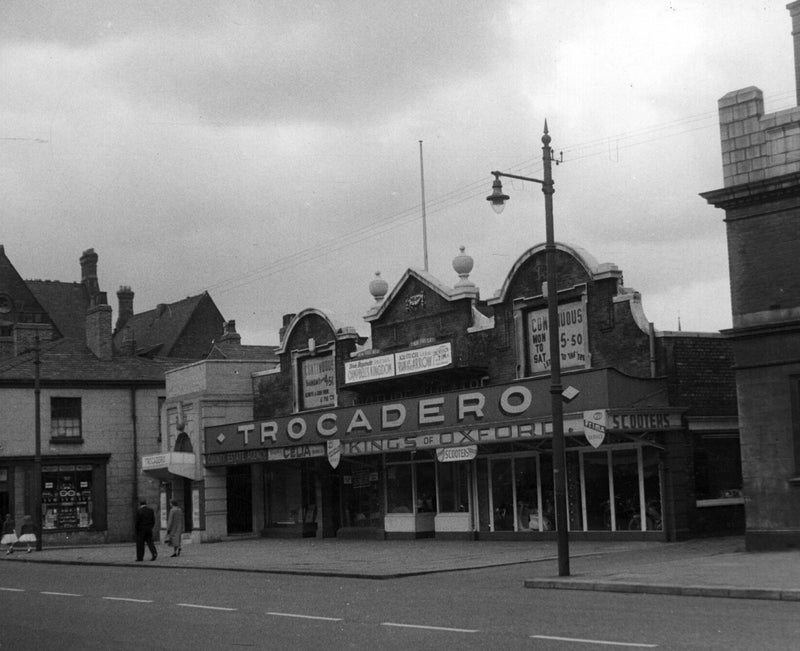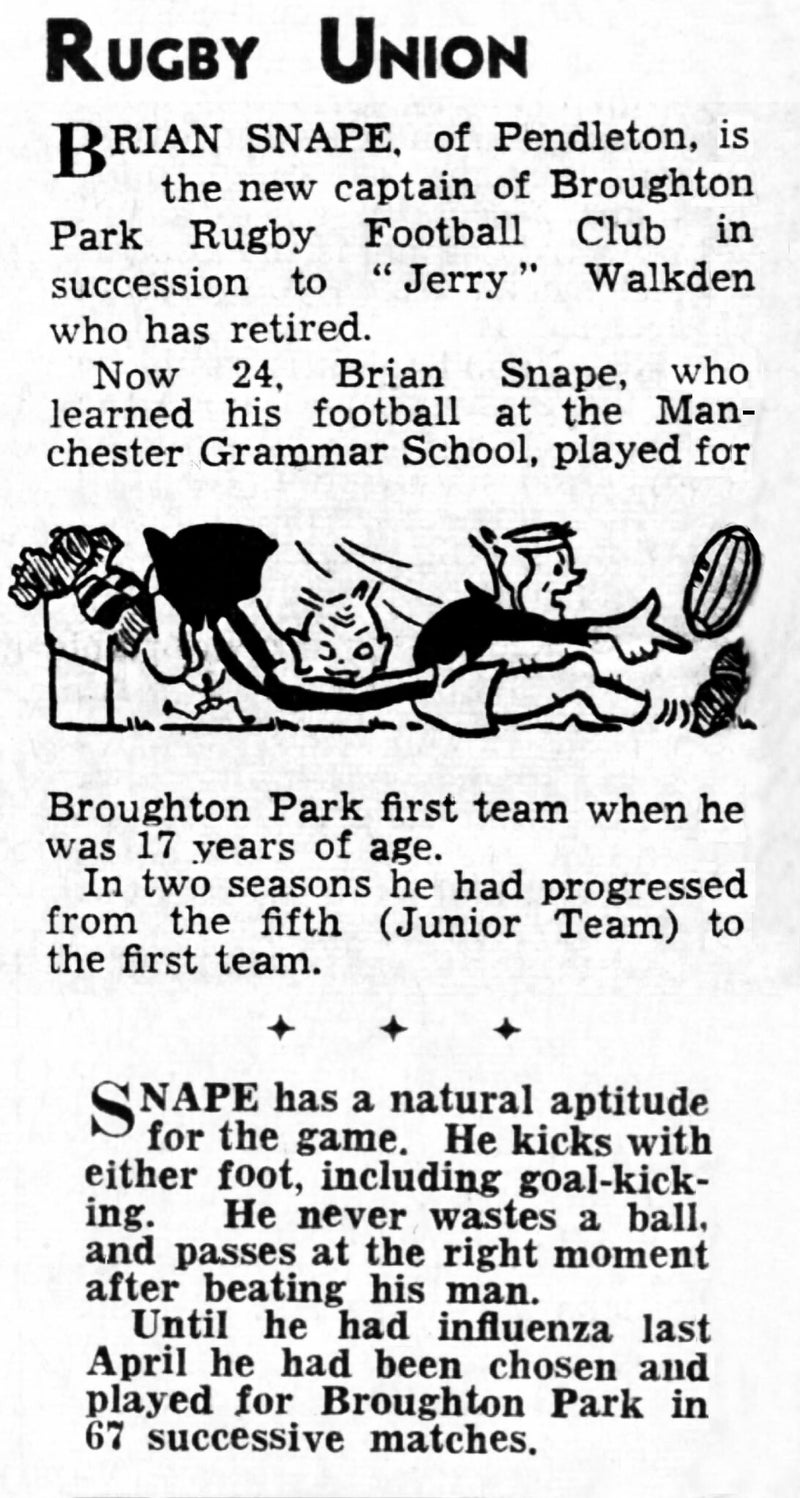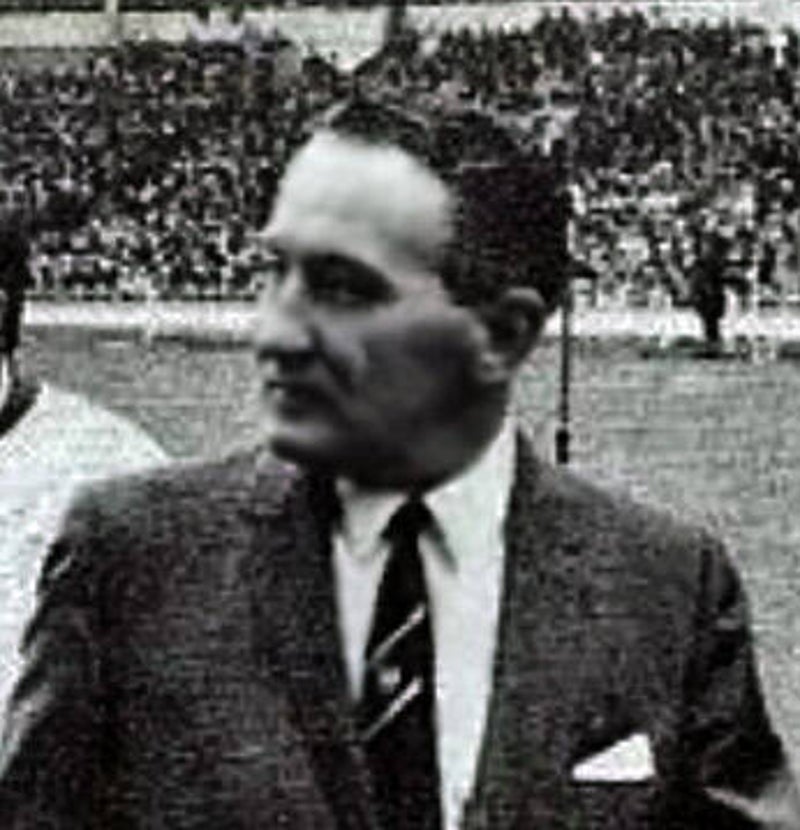The Owners

G ,B. Snape Circuit 1956 - 1988
By 1956, Harold Ward had parted ways with the Snape & Ward Circuit, leaving it in the hands of the remaining shareholders with Brian Snape as Chairman. The resulting company was renamed the G.B. Snape Circuit, the G being Brian's proper first name, George. Brian had not only followed his father in the field of the entertainment industry. He had also served in the RAF during the war, bringing the same discipline and sense of purpose to his roles in both Snape & Ward and now the new G.B. Snape Circuits.
With acquisitions and new builds, the company became the largest it had ever been, with a total of 29 cinemas under its ownership. By 1959, its portfolio of cinemas included:
1. Ambassador, Pendleton*
2. Carlton Super, Clayton
3. Coventry, Broughton
4. Crown Eccles
5. Devonshire, Broughton
6. Electra, Cheadle
7. Ellesmere, Swinton
8. Empire, Blackley
9. Four Ways, Moston
10. Grand, Bournemouth
11. Greenhill, Cheetham Road**
12. Imperial Brooks Bar
13. Magnet, Newton Heath
14. Majestic, Leigh
15. New Curzon, Flixton
16. Palace, Levenshulme
17. Palace, Middleton
18. Plaza, Stockport
19. Queens Longsight**
20. Ritz Bolton
21. Roxy Hollinwood
22. Roxy, Rochdale
23. Sems, Leigh
24. Savoy, Irlam
25. Temple, Cheetham Hill
26. Theatre Royal, Hyde
27. Trocadero, Rusholme**
28. The Warwick Sale
29. Windsor, Bolton
NOTE: Note: Four of these cinemas were designed by John Knight. The Ambassador, in particular, was a constant of the Snape family legacy, being part of the three different cinema circuits they were connected to. The other three cinemas** were later acquired by the family as part of their expansion within the industry.*
It's worth noting that many of the newly acquired cinemas were facing declining patronage and economic challenges, particularly the smaller ones. Whilst it was evident that G.B. Snape was making efforts to salvage some of these venues, the writing was literally on the wall, (or should that be the screen?) Several factors contributed to their decline, with the proliferation of television, particularly after mass sales or rentals that had begun in 1953, coinciding with Queen Elizabeth II's Coronation, being one of the most significant factors.
However, several other factors, including increased competition for people's disposable income, like the ease of hire purchase for luxury goods despite high purchase tax rates, as well as the availability of paid holidays and improved travel options, impacted the frequency of cinema visits. With the decline in the habit of going to the cinema two or three times a week, audiences became more selective in their film choices, and some studios focused on catering to niche audiences, such as horror or adult films, neglecting family-oriented content.
Even the once-popular Cinemascope technology, introduced at great expense in the mid-1950s, lost its appeal. Due to these various factors, numerous cinemas began closing down in the late 1950s many became bingo halls capitalising on the Bingo craze sweeping the nation.
The Ambassador, for instance, initiated Sunday bingo sessions in 1961. By November 1964, the final film screened at the Ambassador was a Hitchcock thriller, "Marnie," featuring Tippi Hedren and Sean Connery. The cinema was subsequently sold to Mecca Ltd and transformed into a full-time Casino and bingo hall. Thus ended 36 years of cinema and theatre use of the Ambassador Super Cinema.
The G.B. Snape circuit would continue to run an ever decreasing cinema circuit, until the sale of their last two remaining cinemas , the Curzon Cinema in Urmston and the twinned Palace Cinema in Middleton in 1988. And so ended a cinema dynasty of 62 years spanning two generations of the Snape family, over three companies from 1926 to 1988.
Brian Snape - Early Life, War Service, and Marriage
Before he became a prominent figure in entertainment and sport, Brian Snape’s early life was shaped by family tradition, athletic talent, and national service.
Born into the successful Snape and Ward cinema family, Brian, alongside his younger brother Keith, had trained as a chartered accountant, following in the footsteps of their father, Alfred Snape. He soon took on secretarial and accounting duties within the family’s growing cinema circuit, developing a keen understanding of both the operational and financial sides of the business.
Outside of work, Brian was a passionate and skilled rugby player. In 1933, he played as a fly-half for Broughton Park Rugby Club and, just a year later, was made team captain, an early sign of his leadership qualities and deep love for the game. His rugby talent would continue to play a significant role throughout his life.
When the Second World War broke out, Brian enlisted in the Royal Air Force, serving as a leading airman and later training for a commission. He also captained the RAF rugby team for three years during the war, combining service with sport and maintaining his strong connection to the game even under wartime conditions.
In the midst of this turbulent period, Brian also found personal happiness. On 10th January 1941, he married Peggy Mathews at St Ann’s Church in Manchester. Their wedding reception, held at the Midland Hotel, was attended by 100 guests, including many from the Kinema trade—testament to Brian’s growing stature in both social and professional circles.
Although he temporarily stepped away from the cinema business during the war to carry out work of national importance, Brian’s early life had already laid the foundations of a remarkable career. With his blend of business acumen, sporting passion, and wartime leadership, Brian Snape would go on to become one of the most influential figures in post-war leisure and entertainment in the North West.
A Visionary Beyond the Silver Screen
Brian Snape's business ventures extended well beyond the cinema circuit that his father had built. Unlike Alfred Snape, who focused primarily on the cinema business, Brian brought a new level of ambition, energy, and diversification to the family business.
His ventures extended well beyond film, reaching deep into the heart of entertainment, hospitality, and even professional sport, transforming how people in the region experienced leisure in the post-war decades.
One of his most notable business moves was the creation of the Stannylands hotel, restaurant, and catering brand, which earned a strong reputation throughout the North West. Always alert to changing public tastes,
Brian also repurposed several former cinema buildings into bingo halls, anticipating the shift in entertainment trends long before many of his peers.
But it was his remarkable leadership of the Salford Rugby League Club that became one of the most defining aspects of his legacy.
The Brian Snape Era at Salford Reds
In September 1963, Brian Snape succeeded Jim Hammond as chairman of Salford Rugby League Club and would go on to oversee one of the most successful and innovative periods in the club’s history. As mentioned before, Brian was a keen rugby player in his youth. Snape had a natural affinity for the game and a sharp eye for its business potential.
In 1964, he appointed Griff Jenkins as secretary-coach, a move that sparked a dramatic turnaround for the club. Within a few short years, Salford were climbing the league ladder, and Snape was introducing bold ideas that reshaped the matchday experience.
A key innovation was the construction of a variety club at The Willows in 1966, aimed at making rugby more appealing to couples and social groups. The addition of the Willows Suite, a dedicated entertainment venue, turned the stadium into a lively hub that blended sport with social entertainment, bringing in elements of the Stannylands hospitality ethos and revolutionising the club’s off-field offering.
The Willows held everything from cabaret and live music to charity shows, weddings and private parties. It launched the career of stars such as Take That's Gary Barlow, and singer Lisa Stansfield, to name but a few.
On the pitch, Salford dazzled. Between 1967 and 1972, average attendance soared to over 7,000—an extraordinary figure at a time when league averages were falling below 2,000. Friday night rugby, introduced with the installation of floodlights in 1966, became a ritual for fans, while Snape’s willingness to invest in talent was clear with the record signing of David Watkins in 1967. Watkins would go on to score in 92 consecutive matches, becoming a Salford legend with 929 points across his career.
The club also led the way in embracing new opportunities. Following the Rugby Football League’s decision to allow Sunday fixtures in 1967, Salford hosted its first Sunday match in 1968 and soon welcomed a large family crowd that might previously have been excluded from traditional midweek or Saturday games. The innovative approach to scheduling, marketing, and hospitality earned national attention, with the 1969 BBC documentary The Game That Got Away citing Salford as a financial model for struggling clubs.
During Snape’s tenure, Salford enjoyed a golden era:
-
Lancashire Cup victory (1972) – their first trophy in 33 years
-
Back-to-back Championships (1973–74, 1975–76)
-
BBC2 Floodlit Trophy (1974–75)
-
Notable wins, including a historic first victory over the touring New Zealand side in 1971
Despite the successes, challenges emerged in the late 1970s. As key players retired and financial pressures mounted, the club began to struggle. The 1976 Premiership Final loss to St. Helens marked the last major final of the Snape era. In 1978, Brian handed the reins to his brother Keith, marking the end of a pivotal chapter.
Salford RLF team photo 1968/69 season.
Showing: Back - McInnes, Burgess, Dixon, Whitehead, Ogden, Coulman, Hill, Bott, Jenkins (coach) Front - Dickens, Jackson, Brennan, Brian Snape (chairman), Watkins, Hesketh, William. Kneeling - Smethurst, Rabbitt
One of his proudest moments as
Brian leads the team out at Wembley in 1969,
A Lasting Regional Legacy
Brian Snape’s leadership at Salford Reds was not only about wins and trophies, but it was about transformation. He applied the same business acumen that had modernised cinemas and reinvented entertainment venues to professional sport, proving that rugby league could be a dynamic, crowd-pulling spectacle. His impact extended even further when the “Red Devils” nickname, popularised at Salford, was adopted by none other than Manchester United, a nod to the broader cultural resonance of the club during his time.
Whether on screen, in the stands, or across a dinner table at a Stannylands venue, Brian Snape understood how people wanted to enjoy their free time, and he built businesses that delivered. His contributions to cinema, sport, and hospitality made him one of the most influential figures in the North West’s post-war entertainment landscape.
Gordon Brian Snape
1915 - 1996
© 2023 - 2024 The Ambassador Super Cinema Salford - All rights reserved.




















Create Your Own Website With Webador